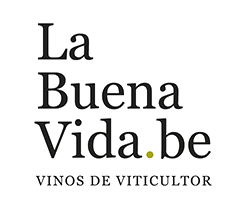The Spanish Chamber of Commerce in Belgium and Luxembourg elects new president
After its annual general meeting, the new board of directors of the Official Spanish Chamber of Commerce in Belgium and Luxembourg today unanimously elected Pablo López-Alvarez as president for the next three years. Pablo López-Alvarez, director of the consulting group FTI Consulting and currently vice president of the Chamber, succeeds Juan Rodriguez Villa (Aspro Parks Group), who held the presidency for the last 11 years.
After his election, the new President expressed his “gratitude and honor for the appointment” and his commitment “to, together with the renewed Board of Directors, ensure continuity of the great work carried out by the Chamber under the leadership of my predecessor.”
“My priority is to continue promoting the dual role of the Chamber, as a facilitator of investment and commercial flows on a bilateral level, and as a platform for dialogue between Spanish companies and European institutions. All these activities will be pursued in an environment that is constantly evolving as a result of the acceleration of digital transformation, decarbonisation and new hybrid work models,” said López-Alvarez.
“Belgium has traditionally been one of the main destinations for Spanish exports, but given its dynamism and openness, it is a market that offers room for growth and new opportunities for our companies, which we must take advantage of. The same can be said of Luxembourg, which, after Brexit, has seen its leadership as a financial hub strengthened”, highlighted the new President.
“On the other hand, we cannot ignore the fact that the Chamber is located in the capital of Europe and that far-reaching and transformative initiatives are currently being developed in Brussels such as the Green Deal, the revision of digital regulations, the redefinition of trade relations with the United States and China, and the development of environmental and social taxonomies or recovery plans. It is crucial that Spanish companies contribute actively. The Chamber is already channelling that contribution, but there is no doubt that we can do more. We must also serve as a transmission belt to help Spanish companies anticipate new trends and opportunities that may arise from political or regulatory decisions at the European level,” added López-Alvarez.
In his farewell Juan Rodriguez-Villa, who has served as president for 16 years, during two different stages, declared: “It has been a great honor to be president of this Chamber and to be able to defend and promote the interests of Spanish companies in Belgium and Luxembourg, as well as to project the Brand Spain (Marca España) in the capital of Europe. I leave with a feeling of duty accomplished. Thanks to the great work of our board of directors and our team, I think I can say, with all modesty but also with special pride, that I am leaving the Chamber at the best moment in its history and with great potential for development ahead”.
The Chamber’s management team counts with two new vicepresidents: Abelardo García (BBVA), representing Belgium and Joseba Arriortua, representing the Delegation in Luxembourg. The Board of Directors is completed by representatives of the following companies: ArcelorMittal, Aspro Parks Group, Atrevia, BBVA, everis (NTT Data), GA-P, Iberdrola, Indra, LaLiga, Mercadona, Meteora, One Life, Racine, Santander or Telefonica.
MobiliseSME programme, giving SME’s staff the opportunity to travel and develop cross-border partnerships in current times
Beata Vlnková and Rudi Verhoest are the owners of two companies who started collaborating through the MobiliseSME programme at the end of March 2021.
Beata has travelled from Slovakia to Belgium to partner up with Rudi during six months in the wine business sector.
They have joined forces to develop their projects, each bringing their own expertise to the table. Although it isn´t easy during the current situation, their collaboration is bringing out the best in both.
Beata is the President of the Association of Sommeliers of the Slovak Republic and CEO of Wine Wave Travel, a wine travel agency based in Slovakia that wants to expand its activities to Belgium.
Her aim is to promote and sell Slovakian and Austrian wines in the Belgian market and expand her network in the country, meanwhile acquiring new competences, such as the Dutch language.
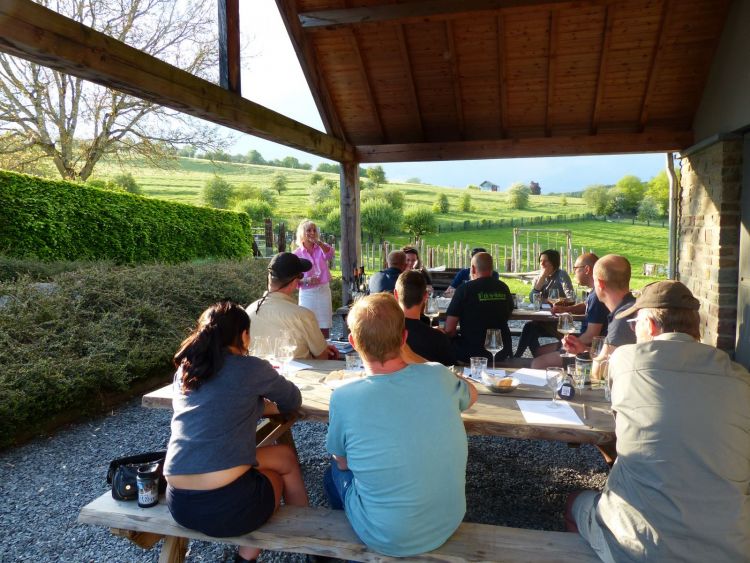 On the other hand, Rudi has thirty years of expertise in the bank and insurance sector in Belgium. He is a wine enthusiast and a cuisine lover who has decided to make a career change: from finance to wine.
On the other hand, Rudi has thirty years of expertise in the bank and insurance sector in Belgium. He is a wine enthusiast and a cuisine lover who has decided to make a career change: from finance to wine.
He wants to increase his knowledge on the wine sector, improve his tasting skills, learn all about wine sales and eventually, consider opening a future wine business.
Both are currently collaborating on a market research in the region of La Roche, in Ardennes. Together they scout for potential customers and contact the tourist office and gîtes in the region. 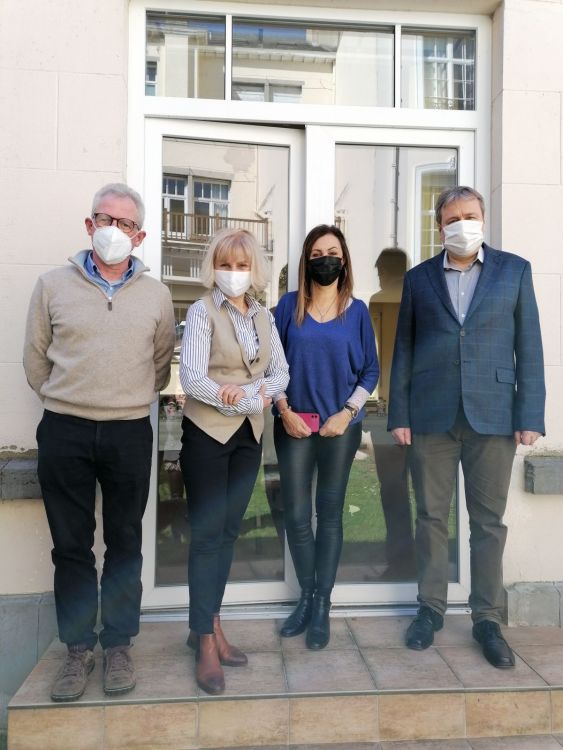
Since April, they have organized several wine tastings adapted to the Covid measures. They started with only two attendees but were able to welcome fifteen people last week with the cooperation of the local agency Back-to-Nature.
They have also been presenting their project to the Ambassador of Slovak Republic to the Kingdom of Belgium and Grand Duchy of Luxembourg and talked about a future event at the Embassy to put in contact Slovakian wine producers and Belgian customers.
Through their alliance, both are exchanging their knowledge in their fields of expertise, sharing their practises and contact networks, while developing their abilities, even languages.
Both are developing a business plan and setting up future collaborations to prepare a scenario after Covid, with the organization of wine tasting events and wine trips between these countries.
Beata and Rudi have seen in MobiliseSME programme the opportunity to partner up and adapt to the current challenges. They are confident many more activities will come towards summer.
Click here to discover more about MobiliseSME programme.
Contact us to register in the programme by sending an email to mobilisesme@e-camara.com.
The Chamber has now released its Yearbook 2021
The Official Spanish Chamber of Commerce in Belgium and Luxembourg has now released its Yearbook 2021.
You can download the yearbook in its digital version through the Chamber’s Intranet by clicking here.
This publication includes information on the available services to our members, the report of the activities organized by the Chamber during 2020, a description of the programmes in which we are involved, as well as a directory of members by activity sector.
From the Chamber, we would like to thank all the associated companies for their support, which allows us to continue improving and to respond to the needs of our members.
The yearbook is available in both Spanish and English.
We would also like to thank the advertisers for their collaboration in the 2021 Yearbook, which allows us to finance the production of this publication:
The Concertation Committee bans non-essential travel and extends isolation period
Last Friday, January the 22nd, the federal government and the federated entities discussed the current coronavirus situation as a Concertation Committee. In an attempt to stop the spread of new strains of coronavirus, the Concertation Committee has decided to temporarily impose a ban on non-essential foreign travel to and from Belgium.
RESTRICTION OF INTERNATIONAL TRAVEL
I. Restriction of non-essential travel
Non-essential trips in and out of Belgium are prohibited from Wednesday, January 27th to Monday, March 1st, 2021. The travel ban will be monitored for road, air, sea, and rail traffic.
Anyone travelling to or from Belgium will be required to carry a sworn statement. A form will be made available by the Ministry of Interior. The sworn statement must be linked to the Passenger Locator Form and supported by the necessary documents.
Only essential travel is allowed during this period, i.e. travel for:
- Compelling family reasons
- Family reunification;
- Visits to a spouse or partner who does not live under the same roof, insofar as the stable and long-term character of the relationship can be proven;
- Journeys in the context of co-parenting, civil and religious marriages, funerals or cremations (of relatives or next of kin).
- Humanitarian reasons
- Travel for medical reasons and continuation of medical treatment;
- Assistance or care to an elderly person, minor, disabled or vulnerable person;
- Visiting relatives receiving palliative care.
- Study purposes
- Journeys by pupils, students and trainees as part of a student exchange program;
- Researchers with a hosting agreement.
- Residents of border areas
- Journeys as part of everyday activities that are also allowed in Belgium
- Professional reasons when performing work-related activities
- Miscellaneous
- Animal care, travel in the context of legal obligations (insofar as these cannot be done online), urgent repairs in the context of vehicle safety and a house move are also considered essential.
II. People travelling from the United Kingdom, South Africa, and South America.
As of Monday, January 25th, all people travelling to Belgium from the United Kingdom, South Africa or South America must quarantine for 10 days with a PCR test on day 1 and day
III. Additional test upon arrival
In addition to the mandatory negative test result prior to departure, the Concertation Committee would like every non-resident travelling to Belgium to be tested again upon arrival. This can be done with a PCR test or a rapid antigen test. The Concertation Committee has requested that the Interministerial Conference on Public Health, the Testing Task Force and the Covid-19 Commissariat make this mandatory.
Extended isolation period
People who test positive for Covid-19 will now have to isolate themselves for ten days.
After a high-risk contact or upon arrival in Belgium, the duration of quarantine remains ten days. This period may be reduced to a minimum of seven days on condition of a negative test result, where the test was taken, at the earliest, seven days after exposure.
Prospect for non-medical contact professions
At this stage of the pandemic, a reopening of non-medical close-contact professions is not yet appropriate.
This may become possible from February 13th at the earliest, provided that the epidemiological situation evolves favourably.
The Concertation Committee will review this situation on February 5th.
The opening of non-medical close-contact professions will only be possible if the existing protocols are strictly adhered to, supplemented by a series of additional measures such as the obligation to make an appointment, compulsory registration, customers waiting outside and windows and doors that must be open at all times.
Source: Info.Coronavirus
Letter from the President to the members in Belgium
Dear members:
The weekly alternation of the editions of our two “newsletters”, intended for members in each of the states that make up the territorial area of the Chamber, has meant that, by chance, my congratulations for the New Year, dedicated to those of you in Belgium, are sent in second place.
I would like these lines to help turn the page on the dreadful year of the pandemic, in which we are still immersed, and to be a harbinger of a return to normality or, rather, the beginning of a new normality. A different kind of normality.
The end of the tunnel can be sensed thanks to the vaccination measures. But it is still not a reality. We cannot let down our guard.
I flee from pessimism, but I cannot escape the feeling of uncertainty. We will keep working with special dedication to win over the battle against the pandemic.
The consequences are devastating, both in society and in the economy worldwide. And we are endeavouring, with great concern, to guess at the future of society and the economy of Spain. And we want to do our best to help rebuild both.
In the current circumstances, there is no room for complacency, and I admit that I feel a sense of satisfaction: the 2020 financial year in our Chamber, which is as difficult as it is strange, has allowed us to collectively bargain with the “coronavirus”. My thanks go to the authors of this win.
First of all, I would like to highlight the intense collaboration with the Spanish Embassy, promoted by our Ambassador, Beatriz Larrotcha Palma, our Honorary President, promoter of numerous activities and close observer of the progress of the Chamber, who, with the support of a competent, generous and cordial diplomatic team, has made it possible to hold various events in collaboration with its Cultural and Scientific Council, under the leadership of its head, Sergi Farré i Salvà.
On a functional level, the Chamber has the reference of the Economic and Commercial Councillor, María Palanca Reh. With her presence on the Board of Directors, in her capacity as Honorary Vice-president, she has exercised the guardianship of the Chamber assuming an active and beneficial role, facilitating the necessary public-private understanding.
My recognition goes to our Secretary General, Marta González Benguria, who was ratified in her position in September. Marta surprises me with her initiatives, her capacity to work and her enthusiasm. She oversees a team that shows similar conditions.
Our Board of Directors is the pillar on which our organisation is based. Its solidity is notorious and the unity of criteria in the achievement of objectives assures the exit from the storm without deterioration. I would like to thank every one of my colleagues and partners. And especially, my feeling of solidarity, which is that of the whole Board, goes to our colleague Rafael Chamorro Marín, member of the Board of Directors in an institutional capacity, as Director for Belgium and Luxembourg of the Spanish Tourist Office, which is suffering particularly from the consequences of the crisis.
The Working Committees, which emanate from the Board of Directors, have been the main protagonists in 2020:
The Forums Committee has worked hard to organise nineteen events with an excellent response, which is measurable by the interest shown by the many participants. Our Vice-President, Pablo López Álvarez, who chairs this Committee, has skilfully moderated numerous debates.
The brand new Spanish Financial Forum has succeeded in placing itself at the forefront of discussion forums in the Grand Duchy of Luxembourg. It is already an excellent tool at the service of the Spanish financial sector, in such an important position. Thanks to José Luis Rodríguez, our Vice-President and head of the forum in Luxembourg, and also thanks to María Catalán, our delegate in Luxembourg, who has worked so hard and so well and continues to do so for its success.
Our most recent Working Commission, “Competencia España”, chaired by Miguel Troncoso, is made up of a distinguished group of prestigious specialists in competition law, who find in this commission an effective vehicle for dialogue with the competition authorities. Miguel’s work is excellent and his collaboration with the Forums Commission is noteworthy.
I was saying that the Board of Directors is the pillar on which the organisation of the Chamber is based, right. But the pillar on which the institution of which we are all members is based is, precisely, its social mass, the set of members.
In order to increase our strength, we must continue to grow. In times of crisis we are part of the help to overcome it. And we are in solidarity. The testimony of that solidarity has been our direct support to some of the members, belonging to the sectors most affected by the crisis.
Thank you, from the bottom of my heart, to each and every one of you. Thank you for your understanding.
And now I invite you, virtually, or not, to raise a glass of Spanish cava to toast together, for our families, our companies and for us.
I ask for blessings to make my best wishes come true, to all the members of this other family: the Chamber family.
Kind regards,
Juan Rodríguez-Villa Matons,
President of the Official Spanish Chamber of Commerce in Belgium and Luxembourg
Webinar: “Towards new urban mobility: new alternatives to the automobile, digital technologies and transport innovations”
Last Friday December 4th, the Cultural and Scientific Department of the Spanish Embassy in Belgium, and the Official Spanish Chamber of Commerce in Belgium and Luxembourg, with the collaboration of the Centre for the Development of Industrial Technology (CDTI) and the Spanish Office of Science and Technology (SOST) organized the third edition of the “Mediodías de la Embajada”, within the framework of the Spain means Innovation program.
The webinar was focused on “Towards new urban mobility: new alternatives to the automobile, digital technologies and transport innovations”, as part of the program of scientific diplomacy and dissemination of science, technology and innovation of Spain in Belgium. The event explored the innovation and business opportunities between Spain and Belgium in the field of electric mobility.
The Spanish Ambassador in Belgium, H.E. Mrs. Beatriz Larrotcha, started the event with the welcoming words and stressed the successful collaboration between Spain and Belgium in the field of science and technology among many others. H.E. Mrs. Beatriz Larrotcha thanked all the attendees for their presence and the speakers for sharing their story. Mr. Mikaël Van Eeckhoudt, mobility advisor, followed in the use of the floor on behalf of Elke Van den Brandt, Brussels’ Minister Mobility, Public Works and Road Safety, and highlighted the efforts carried out in Brussels and many other cities around Europe to ensure the correct transition into e-mobility taking care of aspects as the required infrastructures or reduction of pollutant mobility.
Noshin Omar, CEO of Belgian company Avesta Battery & Energy Engineering (ABEE) shared its experience of collaboration with Spain in the development of electric mobility solutions based on good practices and knowledge sharing as a fundamental part of the partnership without forgetting the importance of commercialization. From Ikerlan, the Spanish counterpart in this collaboration, Igor Villarreal Sarria, Head of Department, detailed the different initiatives and projects they are currently working in as well as the fluid relation with ABEE. After that, Marina Martínez, H2020 Programme Officer in the CDTI-SOST Office in Brussels, explained the very different opportunities for research and development of e-mobility solution under EU projects for Spanish companies.
Finally, during the debate moderated by Beatriz Ríos, Journalist, the speakers had the chance to discuss about the potential and future of green mobility innovation in the transition towards a decarbonized economy, the importance to put the citizens welfare in the center of all mobility policies, the need to smooth project management and reduce the administrative burden as well as the sensible issue of the origin of some critical raw materials like cobalt or lithium in some African countries.
From the Official Spanish Chamber of Commerce in Belgium and Luxembourg, we want to warmly thank all the attendees for their presence and the speakers for their interesting presentations.
Workshop on “Erasmus+ KA2 Project: Ready to get funded”
On November 24th and 25th, the Official Spanish Chamber of Commerce in Belgium and Luxembourg, in collaboration with its member company CWC Consulting, organized a workshop on “Erasmus + KA2 Project: Prepare to receive funding”, which was given by Paloma Cantero, CEO of the company and expert in European affairs, European financing and network development.
The workshop gave the attendees the opportunity to better understand the Erasmus + program and the different funding opportunities within it. Specifically, the training addressed, in the first place, the different key actions, as well as their priority activities. Subsequently, the speaker moved to a more practical perspective, where she explained to the participants the different stages of the project application cycle: from registering on the program platform and obtaining an IOD number to tips, tricks, and best practices for writing and successfully submit a project proposal.
Lastly, during this training, which lasted a total of 4 hours, Paloma Cantero individually advised the participants on some key issues such as the creation of a consortia or the specific rules to participate in Belgium.
COVID-19: The Concertation Committee gives green light to the opening of non-essential shops and specifies the coronavirus control measures for the Christmas season
On November 27th, the Concertation Committee discussed the epidemiological situation in Belgium. Despite the slight improvement in the health situation, the country remains at Covid alert level 4. The Concertation Committee took the following decisions:
Reopening of shops under strict conditions:
Non-essential shops can reopen from 1 December 2020. However, strict hygiene conditions will apply:
- Strict observance of basic rules, such as washing hands, keeping distance, wearing a mask;
- Preventive measures must be visibly announced to all visitors, including staff and suppliers;
- Hydroalcoholic hand gel must be available at the entrance; everyone entering the shop must disinfect their hands;
- Staff must be properly trained;
- Purchases are made individually with an adult for each shopping session. The company of children up to and including the age of 18 is limited as far as possible;
- The visit to the shop should be as short as possible and last a maximum of 30 minutes.
- The shop is also responsible for managing the queue outside the shop. Supervision of customers waiting outside the shop should be organised in such a way that the rules of physical distance are respected. The organisation outside the shop is done according to the guidelines of the local authorities.
The conditions also affect the maximum number of customers per square meter of accessible surface:
- For shops, the rule of 1 customer per 10 square metres of accessible area applies
- Shops of less than 20 m² can receive a maximum of 2 customers at a time, provided that the distance rules are respected;
- Large shops of more than 400 m² must compulsorily provide access control;
- Access to shopping centres, shopping streets and car parks must be organised by the competent municipal authorities, in accordance with the instructions of the Minister of the Interior, in such a way as to respect distance rules, in particular the maintenance of a distance of 1.5 metres between each person.
Museums and swimming pools may be opened in accordance with the protocol for their sector.
The Christmas period:
Also, during the Christmas period, the rules on social contacts remain applicable. In the interests of psychosocial well-being, single people can invite two close contacts at the same time, either on 24th or 25th December.
For meetings abroad, the rule of four still applies.
The curfew between 00h00 and 05h00 remains in force, as does the general ban on meetings. A general ban on the sale and release of fireworks also applies.
Reinforced travel controls:
For persons who have been abroad for more than 48 hours and will remain in Belgium for more than 48 hours, the police will carry out reinforced controls:
- The obligation to fill in a passenger locator form;
- Compliance with the compulsory quarantine.
All the above measures will be in force until 15th January 2021. An assessment based on medical indicators will be carried out at the beginning of January to determine whether a transition to the management phase is possible (see below) and for which sectors.
Downhill phase and management phase:
The Concertation Committee also decided to work in two phases on health management:
- A downstream phase during which it is necessary to reduce the figures linked to pollution as quickly as possible by means of strict measures;
- A management phase during which sector-specific protocols are in force. The sectoral protocols, which exist in various versions depending on the level of alert, are therefore reduced to a single protocol per sector, which is applied during the management phase and defines how to behave in a company that offers a sufficient level of protection against coronavirus.
To move from the downstream phase to the management phase, the incidence rate will have to be low for a sufficiently long period of time. In addition, not all sectors will be in the same phase at the same time. This will depend largely on the epidemiological risk posed by the sector.
Source: info-coronavirus
Virtual breakfast-debate with MEPs José Ramón Bauzá Díaz and Isabel García Muñoz: Priorities of the Committee on Transport and Tourism (TRAN)
On Wednesday November 25th, the Official Spanish Chamber of Commerce in Belgium and Luxembourg organised a new conference as part of the “Breakfasts with the European Parliament“, a meeting platform between Spanish companies and the European Parliament, on “The priorities of the Committee on Transport and Tourism (TRAN) for the new legislature”. The event was attended by MEPs José Ramón Bauzá Díaz (Renew Europe) and Isabel García Muñoz (S&D).
Pablo López Álva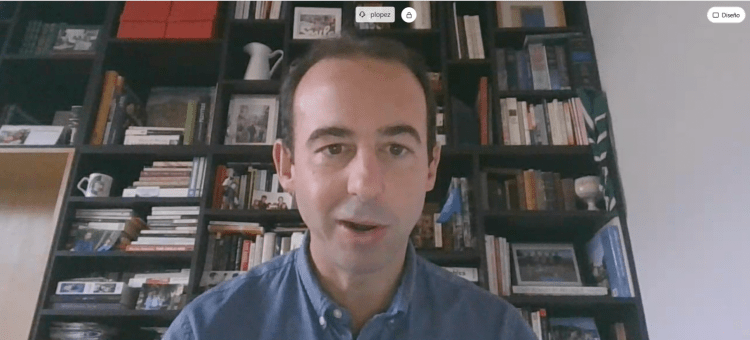 rez, Vice-President of the Chamber and moderator of the event, welcomed and thanked the speakers for their participation and made a brief presentation.
rez, Vice-President of the Chamber and moderator of the event, welcomed and thanked the speakers for their participation and made a brief presentation.
José Ramón Bauzá began his speech by highlighting the radical change in the priorities and perspectives of all the European institutions following the Covid-19, including the Committee on Transport and Tourism. If in an early stage of the legislature the main priority was the Green Deal and the commitment to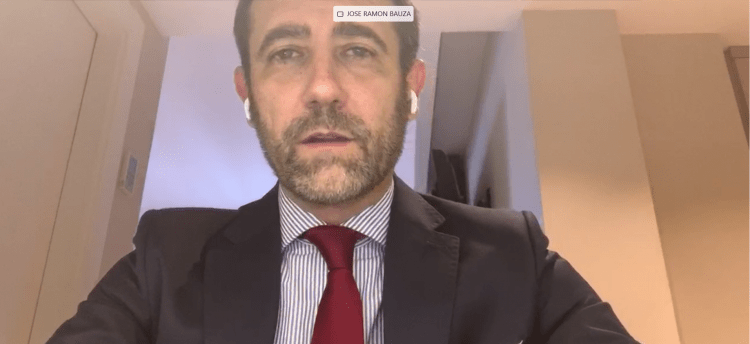 climate neutrality by 2050, in the wake of the pandemic, the absolute priority has become the urgent recovery of the two sectors most affected: transport and tourism. The MEP also stressed the need to achieve a safe and clean transport sector by providing sufficient funding for innovative decarbonisation technologies such as liquid gas, electric motors and hydrogen. With regard to tourism, Mr. Bauzá highlighted the enormous importance of the tourism sector for Spain, as it means around 15% of the GDP as well as millions of jobs, and the close relationship between the tourism and transport sectors. Despite this importance, there is no budget allocation at European Union level for investment in tourism, although the Parliament is working to achieve this.
climate neutrality by 2050, in the wake of the pandemic, the absolute priority has become the urgent recovery of the two sectors most affected: transport and tourism. The MEP also stressed the need to achieve a safe and clean transport sector by providing sufficient funding for innovative decarbonisation technologies such as liquid gas, electric motors and hydrogen. With regard to tourism, Mr. Bauzá highlighted the enormous importance of the tourism sector for Spain, as it means around 15% of the GDP as well as millions of jobs, and the close relationship between the tourism and transport sectors. Despite this importance, there is no budget allocation at European Union level for investment in tourism, although the Parliament is working to achieve this.
During her speech, Isabel García Muñoz explained the strategic importance of the transport sector as a mechanism for territorial cohesion, external competitiveness and promoting economic growth. In the current framework of transition towards climate neutrality, a fair transition is necessary, which will i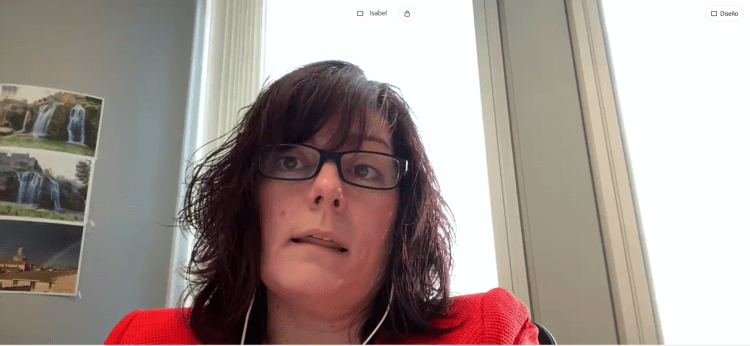 nvolve sustainable, intelligent and inclusive mobility for everyone. Therefore, the European Commission is working on a new “white book” on transport and will promote certains means of transport such as inland navigation or railways through the single European railway area. The MEP also highlighted the need to achieve a full recovery of the tourism and transport sector through a commitment to digitalisation, retraining of workers and the interoperability and intermodality of transport.
nvolve sustainable, intelligent and inclusive mobility for everyone. Therefore, the European Commission is working on a new “white book” on transport and will promote certains means of transport such as inland navigation or railways through the single European railway area. The MEP also highlighted the need to achieve a full recovery of the tourism and transport sector through a commitment to digitalisation, retraining of workers and the interoperability and intermodality of transport.
During the question time, the participants were able to ask several questions on various topics. Thus, topics such as the Horizon Europe programmes or the single european airspace, the viability and transformation of airlines, investment funds in infrastructure or accessibility for people with disabilities in the air or rail sectors were discussed.
From the Official Spanish Chamber of Commerce in Belgium and Luxembourg we would like to thank José Ramón Bauzá and Isabel García Muñoz and all those present for their participation.
ABOUT US
The Official Spanish Chamber of Commerce in Belgium and Luxembourg is a non-profit association whose main objective is the development of trade and investments between Spain, Belgium and Luxembourg. The Chamber offers to the companies a wide range of commercial and promotional services as well as professional contacts and facilitates business networking among its partners.
CONTACT
Belgium
Avenue des Arts 1-2,
1210, Brussels, Belgium
Tel. +32 2 517 17 40
info@e-camara.com
Luxembourg
Tel. +352 661 404 399
luxemburgo@e-camara.com




